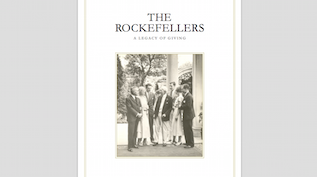The Rockefellers
Posted on May 24, 2014 by Rockefeller Philanthropy Advisors

For the Rockefellers, giving has been a central family value that has spanned three centuries. The strong belief of early generations that wealth comes with great responsibility continues to inform the philanthropy of current generations, helping to shape their priorities and perspectives on giving. The family is now entering its seventh generation and has maintained its tradition of giving within… Read More



